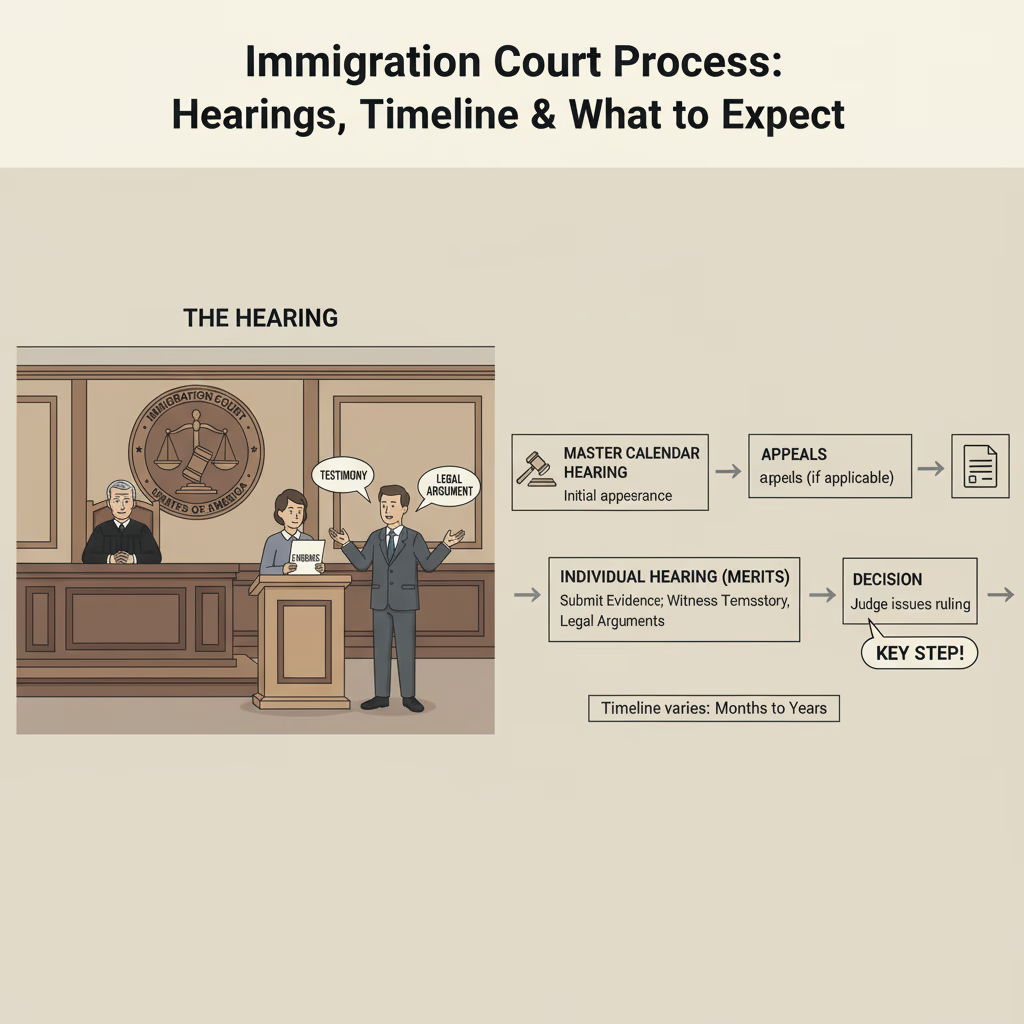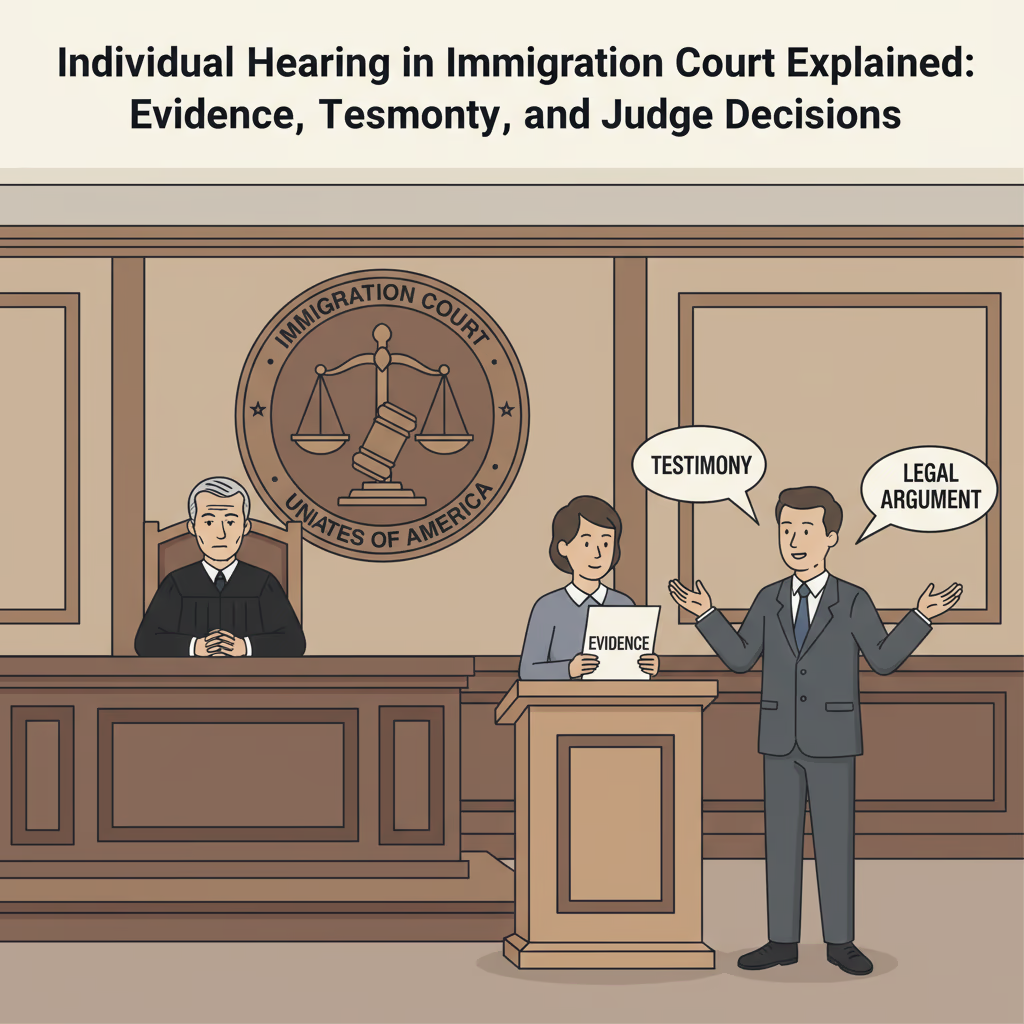Are you feeling overwhelmed and confused about the asylum process? Look no further. In this insightful article, we demystify the asylum process with the help of DFW lawyer, Michael Piri. With years of experience in immigration law, Piri offers his expertise to shed light on the complexities of seeking asylum.
Navigating the path to asylum can be daunting, but Piri’s insights provide clarity and invaluable guidance. From understanding the criteria for eligibility to gathering the necessary evidence, Piri breaks down the process step by step. As a dedicated advocate for his clients, Piri shares his vast knowledge to help applicants understand their rights, the importance of legal representation, and the potential challenges they may face.
Whether you’re an asylum seeker or simply interested in learning more about the process, this article is a must-read. Gain a deeper understanding of the asylum process through the lens of a seasoned legal professional. Let Michael Piri be your trusted source of information and guidance on your journey towards asylum.
Understanding the role of an asylum lawyer
Seeking asylum is a complex legal process that requires expert guidance. An asylum lawyer plays a crucial role in assisting individuals who fear persecution in their home countries. They are well-versed in immigration laws and have in-depth knowledge of the asylum process. An experienced asylum lawyer such as Michael Piri can provide guidance and support throughout the entire process.
An asylum lawyer acts as a legal advocate for their clients, helping them navigate the intricate web of laws and regulations. They assist with document preparation, evidence gathering, and representation in court. Additionally, they provide advice on the various legal options available to asylum seekers and ensure their rights are protected.
Choosing the right asylum lawyer is of paramount importance. A skilled and experienced lawyer like Michael Piri can make a significant difference in the outcome of an asylum case. They possess the expertise and knowledge necessary to handle complex legal issues and effectively present the client’s case to the immigration authorities.
The role of an asylum lawyer extends beyond legal representation. They provide emotional support and reassurance to their clients, who often find themselves in highly stressful situations. By working closely with their clients, a dedicated asylum lawyer can offer guidance and help alleviate some of the anxiety associated with the asylum process.

The importance of choosing the right attorney
Selecting an experienced and trustworthy attorney is crucial when applying for asylum. The right attorney can greatly impact the outcome of an asylum case, ensuring that the applicant’s rights are protected and their case is presented effectively. Michael Piri, a renowned DFW lawyer specializing in immigration law, stresses the importance of choosing the right attorney to guide applicants through the asylum process.
When selecting an attorney, it is essential to consider their experience and expertise in immigration law, specifically in asylum cases. An attorney with a proven track record of successfully representing asylum seekers will have the knowledge and skills necessary to navigate the complexities of the process.
Moreover, a good asylum attorney should possess excellent communication skills and be able to build a strong rapport with their clients. They should be empathetic and understanding, providing a safe space for clients to share their stories and fears. Michael Piri takes pride in establishing a trusting relationship with his clients, ensuring they feel supported and heard throughout the entire asylum process.
It is also crucial to choose an attorney who is well-versed in the specific requirements and criteria for asylum eligibility. Michael Piri emphasizes the importance of working with an attorney who understands the nuances of asylum law and can effectively guide applicants through the process. With his extensive experience, Piri is well-equipped to handle even the most complex asylum cases.
Common misconceptions about the asylum process
The asylum process is often surrounded by misconceptions and misinformation. These misconceptions can lead to confusion and unnecessary anxiety for asylum seekers. Michael Piri, an experienced immigration lawyer, aims to debunk some of the common misconceptions surrounding the asylum process.
One common misconception is that seeking asylum is an easy and straightforward process. In reality, the asylum process can be complex and time-consuming. It requires thorough preparation, careful documentation, and a strong legal case. Michael Piri stresses the importance of understanding the intricacies involved in order to navigate the process effectively.
Another misconception is that asylum seekers are eligible for benefits immediately upon filing their application. While applicants may be eligible for certain benefits, such as work permits, they must go through a rigorous process to establish their eligibility. Michael Piri emphasizes the need for patience and proper legal guidance to successfully obtain the necessary benefits.
Additionally, there is a misconception that asylum seekers can represent themselves without legal counsel. While it is possible to navigate the asylum process without an attorney, it is highly discouraged. The asylum process involves complex legal procedures and requires extensive knowledge of immigration laws. Michael Piri strongly advises seeking legal representation to ensure the best possible outcome.

Steps involved in applying for asylum
Applying for asylum involves several steps and requires meticulous attention to detail. Michael Piri outlines the key steps involved in the asylum application process, offering valuable insights for applicants.
1. Filing the I-589 Form: The first step in the asylum process is filing the I-589 form, also known as the Application for Asylum and Withholding of Removal. This form should be completed accurately and thoroughly, providing all relevant details about the applicant’s personal circumstances and reasons for seeking asylum.
2. Gathering supporting evidence: Supporting evidence plays a crucial role in an asylum case. It is essential to gather any documentation that can strengthen the applicant’s claim for asylum. This may include personal statements, affidavits from witnesses, country-specific reports on human rights violations, medical records, or any other relevant supporting documents.
3. Preparing for the asylum interview: Once the application is filed, the applicant will be scheduled for an asylum interview with an asylum officer. This interview is a critical part of the process, as the officer will assess the credibility of the applicant’s claim. Michael Piri advises applicants to thoroughly prepare for the interview by reviewing their case, practicing their testimony, and seeking guidance from their attorney.
4. Attending the asylum interview: During the asylum interview, the applicant will be required to provide a detailed account of their experiences and explain why they are seeking asylum. It is essential to remain truthful and consistent throughout the interview. Michael Piri emphasizes the importance of maintaining open communication with the asylum officer and addressing any concerns or discrepancies that may arise.
5. Waiting for a decision: After the asylum interview, the applicant must wait for a decision from the immigration authorities. This waiting period can be lengthy and nerve-wracking. Michael Piri advises applicants to stay in close contact with their attorney and promptly respond to any requests for additional documentation or information.
6. Appealing a denial: In the unfortunate event of a denial, applicants have the right to appeal the decision. This involves submitting an appeal with the appropriate immigration court. Michael Piri highlights the importance of seeking legal counsel to navigate the appeals process effectively.
Key factors that determine asylum eligibility
To be eligible for asylum, applicants must meet specific criteria outlined by the immigration laws. Michael Piri provides an overview of the key factors that determine asylum eligibility.
1. Fear of persecution: The applicant must establish a well-founded fear of persecution based on race, religion, nationality, political opinion, or membership in a particular social group. It is crucial to provide compelling evidence to support this claim.
2. Home country conditions: The applicant must demonstrate that they would face persecution or harm if they were to return to their home country. This requires providing evidence of the prevailing conditions in their home country, such as reports of human rights abuses or instances of targeted violence.
3. Timely filing: Asylum applications must be filed within one year of the applicant’s arrival in the United States. Failure to meet this deadline may result in the denial of the asylum claim, unless exceptional circumstances can be established.
4. Credibility: The applicant’s credibility plays a significant role in the asylum process. The asylum officer or immigration judge will assess the applicant’s credibility based on their demeanor, consistency in their statements, and supporting evidence.
5. Exclusion and ineligibility grounds: There are certain grounds of exclusion and ineligibility that may prevent an applicant from being granted asylum. These include criminal convictions, participation in persecution, engaging in terrorist activities, or posing a threat to national security.
Understanding these key factors is essential for asylum seekers to assess their eligibility and build a strong case. Michael Piri advises applicants to seek legal counsel to navigate the complex eligibility requirements successfully.

Challenges and obstacles faced during the asylum process
The asylum process is not without its challenges and obstacles. Michael Piri shares insights into the common challenges faced by asylum seekers and how to overcome them.
1. Language barriers: Many asylum seekers face language barriers, which can hinder their ability to effectively communicate their claims. It is crucial to seek assistance from interpreters or translators to ensure accurate communication during the asylum interview and throughout the process.
2. Lack of documentation: Asylum seekers often face challenges in obtaining necessary documentation to support their claims. This may be due to the loss or destruction of documents during their journey or persecution in their home country. Michael Piri advises applicants to gather any available evidence and work closely with their attorney to build a compelling case.
3. Trauma and emotional distress: Many asylum seekers have experienced traumatic events in their home countries, leading to emotional distress and mental health challenges. Michael Piri emphasizes the importance of seeking appropriate support and counseling to address these issues and ensure the well-being of the asylum applicants.
4. Lengthy processing times: The asylum process can be lengthy, with processing times varying significantly. This can lead to prolonged uncertainty and anxiety for asylum seekers. Michael Piri advises applicants to stay in close contact with their attorney and be prepared for possible delays in the process.
5. Inconsistent decision-making: Asylum cases can be subject to inconsistent decision-making, with similar cases resulting in different outcomes. Michael Piri highlights the importance of engaging a skilled attorney who can effectively present the applicant’s case and address any inconsistencies in decision-making.
Navigating these challenges requires resilience and support. Michael Piri encourages asylum seekers to stay informed, seek legal representation, and reach out to organizations that provide assistance to asylum seekers.
Insights from DFW lawyer Michael Piri
Michael Piri, a highly respected DFW lawyer specializing in immigration law, shares his insights gained through years of experience representing asylum seekers. His expertise and dedication to his clients have made him a trusted source of guidance and support.
According to Michael Piri, one of the most crucial aspects of the asylum process is to seek legal representation early on. Asylum cases involve complex legal procedures and require extensive knowledge of immigration laws. A skilled attorney can assess the applicant’s eligibility, gather the necessary evidence, and present a compelling case to the immigration authorities.
Michael Piri also emphasizes the importance of honesty and consistency throughout the asylum process. Asylum officers and immigration judges carefully scrutinize the applicant’s credibility. Being truthful and providing consistent statements and evidence is crucial to establishing a strong case.
Additionally, Michael Piri encourages asylum seekers to take advantage of available resources and support networks. Numerous organizations provide free or low-cost legal services, counseling, and community resources to assist those seeking asylum. These resources can provide invaluable guidance and support throughout the asylum process.
Useful resources for asylum seekers
Asylum seekers can benefit from various resources that offer guidance, legal assistance, and support throughout the asylum process. Michael Piri shares a list of useful resources to aid asylum seekers in their journey:
1. United Nations High Commissioner for Refugees (UNHCR): The UNHCR provides information and resources for asylum seekers worldwide. Their website offers guidance on the asylum process, country-specific information, and access to legal aid.
2. American Immigration Lawyers Association (AILA): AILA is a professional association of immigration lawyers. Their website provides a directory of attorneys specializing in asylum cases, as well as resources and updates on immigration laws and policies.
3. Refugee Council USA: Refugee Council USA is a coalition of organizations dedicated to advocating for the rights of refugees and asylum seekers. Their website offers resources, advocacy tools, and information on policy issues related to refugees and asylum seekers.
4. Local non-profit organizations: Many local non-profit organizations provide free or low-cost legal services, counseling, and support to asylum seekers. These organizations can assist with the asylum application process, provide referrals to legal representation, and offer language and cultural support.
5. Legal clinics and pro bono services: Some law schools and legal clinics offer pro bono services to asylum seekers. These services can include legal advice, assistance with document preparation, and representation in asylum cases.
It is essential for asylum seekers to utilize these resources and seek legal representation to navigate the asylum process effectively.
Conclusion
Seeking asylum is a complex and challenging process, but with the guidance of an experienced attorney like Michael Piri, individuals can navigate the path with clarity and confidence. Understanding the role of an asylum lawyer, choosing the right attorney, and dispelling common misconceptions are crucial steps in pursuing a successful asylum claim.
By breaking down the steps involved in applying for asylum and highlighting the key factors that determine eligibility, Michael Piri provides valuable insights for asylum seekers. He also addresses the challenges and obstacles faced during the asylum process, offering guidance on how to overcome them.
Through his expertise and dedication to his clients, Michael Piri has become a trusted source of information and support for those seeking asylum in the DFW area. By utilizing the available resources and seeking legal representation, asylum seekers can navigate the process with the best chance of success.
Demystify the asylum process and embark on your journey towards asylum with the guidance of a seasoned legal professional. Let Michael Piri be your trusted advocate and source of information as you navigate the complexities of seeking asylum.






